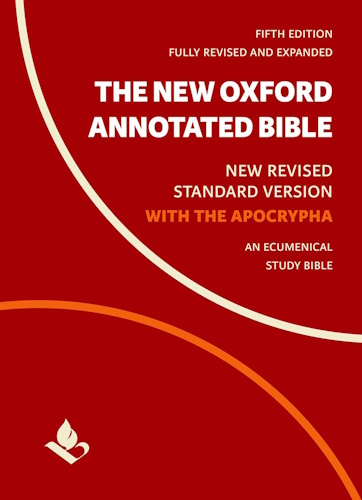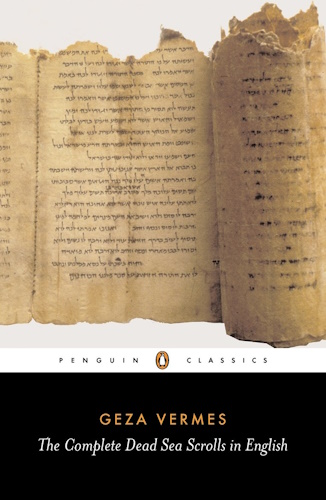
The Origin
Of
Our Belief In God
by Erik Langkjer
Part I: El and Baal, the Shepherd and the Hunter
7. The pantherskin & Lycourgos
M.Detienne[1] has a chapter on "The perfumed panther" about the strange beliefs surrounding the panther. From the mountains in Armenia it sneaks down to hunt and by the strong scent it sends out (the lovely smell of the paradise mountain) it attracts its poor victims. But the maenad is also the perfumed panther.
Sophocles talks about the maenad in "pantherskin"[2] and Dilthey has shown[3] that this cloak of skin was the typical hunting-clothes for "the wild hunter" Zagreus and his hunting bitches. Oppian quotes from older Orfic authors that the maenads were changed to panthers before they tore the bull to pieces[4]. The name of the great hunter in the Bible is Nimrod, the Assyrian name for the "panther" nimru.
Lycourgos is already mentioned in the Iliad as he, who attacks Dionysos with a bouplex, often trans. "the stick to drive the ox", but it could also be the axe to kill the ox. Ovid Met. IV, 22 calls Lycourgos bipenniferus ("carrier of a double axe"),and Nonnos has acc to G.Zoega taken the bouplex to be a double axe[5] and calls it a weapon given by Hera to use against gods. Zoega brings this copper print of a sarcophagus now lost[6]:

In an article about gems Zoega describes the following piece[7]:
"A bearded and strong man, naked except for a panther's skin bound to his waist and waving behind him, so stands Lycourgos with a bipennis raised in both hands and turned against a vine tree".
The fact that the victim of the violent bull-killer can also be seen as a tree, shows that the bull is the god of vegetation[8]. The last picture shows how Lycourgos is punished by the gods with blinding. Even though the Dionysos myth often fuses the "hunter" with his victim, Dionysos being the leader of the wild hunt, but also becoming its victim and getting torn to pieces, there is a faint memory that these two were originally opponents: "The ox-born" and "the ox-killer". Like Orion, Lycourgos is punished with blindness.

The most prominent source to the Arabian Lycourgos are the friezes (now almost worn away) by the entrance to adyton in the Bacchus temple in Baalbeck[9] and Nonnos Dion. XX, 146ff. Nonnos tells us how Lycourgos, king over the city situated on Mt. Nysa, has his gates adorned with heads and feet cut off from human bodies. He chases the Dionysos child into the sea and attacks Ambrosia, who by the intervention of mother Earth is changed into a wine tree, which immediately flings its runners around the king and keeps him bound to the spot. He is doomed by the gods to wander from place to place as a blind man, but at last he gets a place among the eternal gods, for the Arabs give libations to him on "smoking altars". The friezes from the Bacchus temple show scenes with Lycourgos and the metamorphosis of Ambrosia.
All the traces of Indo-European wolf-warrior ideology (Lycourgos means "he who acts like a wolf") have disappeared in this version, and the myth is concentrated on the confrontation between the goddess of vegetation and the man with the axe. Ambrosia is not an ordinary nymph. She is the tree of life-giving ambrosia, and Nysa is the paradise mountain in the land of the incense-trees.
Important is Lycourgos´ continued threat: that he will burn the wine leaf with "Arabian fire" (XX 237, XXI 135ff.). He is the summer heat, who threatens to dry out the vegetation. A mosaic from Djemila-Cuicul in Algeria shows Ambrosia being attacked by Lycourgos[10], cf. the coins from Afrodisias, where the sacred tree is also a female.


The coin is from A.B.Cook: Zeus II, fig. 620 & 621-3.
[1] Dionysos mis a mort, 1977
[2] Pardalephóros fragm.16, Scol. Aristoph. Av. 943
[3] Archaeol. Zeitschrift 31, p.90f.
[4] Cyneg. 4, 305
[5] "Lykurgos von den Maenaden bezwungen", in: Abhandlungen, 1817, ed. by F.G.Welcker p.5n10
[6] ibd. p.353
[7] ibd. p.354n2
[8] ibd. t. I, 2
[9] Ch.Picard in: Mélanges Syriens off. a R.Dussaud, 1939, pp.319-43
[10] Picard, p.341
![]()
![]()
Disclaimer:
Some material presented will contain links, quotes, ideologies, etc., the contents of which should be understood to first, in their whole, reflect the views or opinions of their editors, and second, are used in my personal research as "fair use" sources only, and not espousement one way or the other. Researching for 'truth' leads one all over the place...a piece here, a piece there. As a researcher, I hunt, gather and disassemble resources, trying to put all the pieces into a coherent and logical whole. I encourage you to do the same. And please remember, these pages are only my effort to collect all the pieces I can find and see if they properly fit into the 'reality aggregate'.
Personal Position:
I've come to realize that 'truth' boils down to what we 'believe' the facts we've gathered point to. We only 'know' what we've 'experienced' firsthand. Everything else - what we read, what we watch, what we hear - is what someone else's gathered facts point to and 'they' 'believe' is 'truth', so that 'truth' seems to change in direct proportion to newly gathered facts divided by applied plausibility. Though I believe there is 'truth', until someone representing the celestial realm visibly appears and presents the heavenly records of Facts And Lies In The Order They Happened, I can't know for sure exactly what "the whole truth' on any given subject is, and what applies to me applies to everyone. Until then I'll continue to ask, "what does The Urantia Book say on the subject?"
~Gail Bird Allen
![]()
![]()
-
Urantia Book, 44:0.11 - The Celestial Artisans
Never in your long ascendancy will you lose the power to recognize your associates of former existences. Always, as you ascend inward in the scale of life, will you retain the ability to recognize and fraternize with the fellow beings of your previous and lower levels of experience. Each new translation or resurrection will add one more group of spirit beings to your vision range without in the least depriving you of the ability to recognize your friends and fellows of former estates.
-
Princess Bride 1987 Wallace Shawn (Vizzini) and Mandy Patinkin (Inigo Montoya)
Vizzini: HE DIDN'T FALL? INCONCEIVABLE.
Inigo Montoya: You keep using that word. I do not think it means what you think it means. -
Urantia Book, 117:4.14 - The Finite God
And here is mystery: The more closely man approaches God through love, the greater the reality -- actuality -- of that man. The more man withdraws from God, the more nearly he approaches nonreality -- cessation of existence. When man consecrates his will to the doing of the Father's will, when man gives God all that he has, then does God make that man more than he is.
-
Urantia Book, 167:7.4 - The Talk About Angels
"And do you not remember that I said to you once before that, if you had your spiritual eyes anointed, you would then see the heavens opened and behold the angels of God ascending and descending? It is by the ministry of the angels that one world may be kept in touch with other worlds, for have I not repeatedly told you that I have other sheep not of this fold?"
-
Urantia Book, Foreword - 0:12.12 - The Trinities
But we know that there dwells within the human mind a fragment of God, and that there sojourns with the human soul the Spirit of Truth; and we further know that these spirit forces conspire to enable material man to grasp the reality of spiritual values and to comprehend the philosophy of universe meanings. But even more certainly we know that these spirits of the Divine Presence are able to assist man in the spiritual appropriation of all truth contributory to the enhancement of the ever-progressing reality of personal religious experience—God-consciousness.
-
Urantia Book, 1:4.3 - The Mystery Of God
When you are through down here, when your course has been run in temporary form on earth, when your trial trip in the flesh is finished, when the dust that composes the mortal tabernacle "returns to the earth whence it came"; then, it is revealed, the indwelling "Spirit shall return to God who gave it." There sojourns within each moral being of this planet a fragment of God, a part and parcel of divinity. It is not yet yours by right of possession, but it is designedly intended to be one with you if you survive the mortal existence.
-
Urantia Book, 1:4.1 - The Mystery Of God
And the greatest of all the unfathomable mysteries of God is the phenomenon of the divine indwelling of mortal minds. The manner in which the Universal Father sojourns with the creatures of time is the most profound of all universe mysteries; the divine presence in the mind of man is the mystery of mysteries.
-
Urantia Book, 1:4.6 - The Mystery Of God
To every spirit being and to every mortal creature in every sphere and on every world of the universe of universes, the Universal Father reveals all of his gracious and divine self that can be discerned or comprehended by such spirit beings and by such mortal creatures. God is no respecter of persons, either spiritual or material. The divine presence which any child of the universe enjoys at any given moment is limited only by the capacity of such a creature to receive and to discern the spirit actualities of the supermaterial world.
-
Urantia Book, 11:0.1 - The Eternal Isle Of Paradise
Paradise is the eternal center of the universe of universes and the abiding place of the Universal Father, the Eternal Son, the Infinite Spirit, and their divine co-ordinates and associates. This central Isle is the most gigantic organized body of cosmic reality in all the master universe. Paradise is a material sphere as well as a spiritual abode. All of the intelligent creation of the Universal Father is domiciled on material abodes; hence must the absolute controlling center also be material, literal. And again it should be reiterated that spirit things and spiritual beings are real.
-
Urantia Book, 50:6.4 - Planetary Culture
Culture presupposes quality of mind; culture cannot be enhanced unless mind is elevated. Superior intellect will seek a noble culture and find some way to attain such a goal. Inferior minds will spurn the highest culture even when presented to them ready-made.
-
Urantia Book, 54:1.6 - True And False Liberty
True liberty is the associate of genuine self-respect; false liberty is the consort of self-admiration. True liberty is the fruit of self-control; false liberty, the assumption of self-assertion. Self-control leads to altruistic service; self-admiration tends towards the exploitation of others for the selfish aggrandizement of such a mistaken individual as is willing to sacrifice righteous attainment for the sake of possessing unjust power over his fellow beings.
-
Urantia Book, 54:1.9 - True And False Liberty
How dare the self-willed creature encroach upon the rights of his fellows in the name of personal liberty when the Supreme Rulers of the universe stand back in merciful respect for these prerogatives of will and potentials of personality! No being, in the exercise of his supposed personal liberty, has a right to deprive any other being of those privileges of existence conferred by the Creators and duly respected by all their loyal associates, subordinates, and subjects.
-
Urantia Book, 54:1.8 - True And False Liberty
There is no error greater than that species of self-deception which leads intelligent beings to crave the exercise of power over other beings for the purpose of depriving these persons of their natural liberties. The golden rule of human fairness cries out against all such fraud, unfairness, selfishness, and unrighteousness.


































